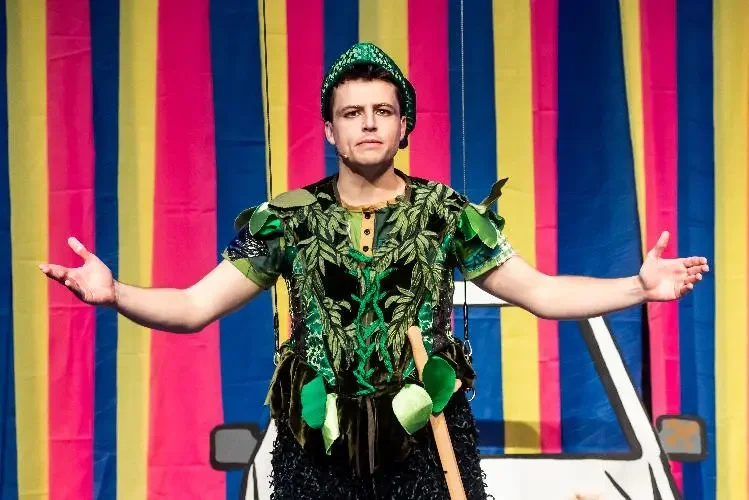The Great Gatsby, Golden Goose Theatre Review
Written by Greta for Theatre and Tonic
Disclaimer: Gifted tickets in exchange for an honest review
It is believed that the term “Jazz Age” to describe the socio-cultural period between the 20s and the 30s, overlapping with both the Roaring Twenties and the Prohibition Era, was popularised by Francis Scott Fitzgerald. One of the author’s most beloved novels, The Great Gatsby, is the source material for this stage adaption, set exactly in the time whose name Fitzgerald helped to spread.
Putting a novel like The Great Gatsby on stage, and furthermore on a fringe stage, where space can be limited for a story of this scope, glamour, and excess, is no mean feat. Doing it with a cast of seven multilingual, multi-roling, musically gifted actors proves to be a successful way to try – despite my initial doubts about overcrowding the stage and overstimulating the audience.
The story and themes of The Great Gatsby are well-known and its appeal has engrossed many creatives in the last century, all trying to convey the novel’s disillusionment, class prejudice, and devotion (though, in my opinion, Nick’s devotion for Gatsby is far greater and more sincere than the one Gatsby harbours for Daisy). As far as adaptation goes, this production is very faithful to the original material, staying as true as theatrically possible to Fitzgerald’s words. Some additions are needed and welcome, like the music numbers interspersed through the 70 minutes of run time (particularly enjoyable is Eloise O’Connor and Sonny Pilgrim’s Ain’t We Got Fun?).
The show flows smoothly; there’s always something happening on stage thanks to the clever use of a cast of seven versatile performers who constantly shift from role to role, seamlessly enacting constant change and gifting dynamism and pace to a talk-heavy script.
The Jazz Age, especially in its white and western facet, is often characterised as a decadent, pleasure-oriented, carefree period. Dancing, alcohol, smoke, and sexual adventurousness are some of the trademark features of those years. There are some delightful relationship dynamics in The Great Gatsby, which today we wouldn’t hesitate to define as polycules. Within the perceived debauchery and audaciousness of a young, daring generation, Nick is supposed to be the grounded voice of reason, still bound to a more “acceptable” morality. Alex Figueiredo is excellent as Nick, establishing a solid, dependable narrator who embodies an almost cartoonish intellectual stereotype while also being the pulsating heart of proceedings. In this production, Nick is not as much of an outsider as in other versions; he certainly doesn’t adhere to the conventional looks and interests of his era, but he’s not completely removed by it, showing adaptability and amenability of character without letting himself being domineered by more outspoken and brash figures. The other characters, to various degrees, share the same refusal in being boxed in, and the desire to act humanly, beyond the labels of shallow debutante, enigmatic man of means, or sardonic best friend.
What shines through, thanks to this approach, is the genuineness of (allegedly) platonic relationships in contrast to the deceit and fleetingness of romantic love. Both Tom Buchanan and Jay Gatsby “love” Daisy, but neither of them really sees her or is willing to let her speak. Gatsby may not hit her or take her for granted like Tom does – a “love” that is easier and more immediate not to classify as such – but there’s a fundamental idealisation and sense of ownership of Daisy by both the men in her life that ultimately leaves her with little agency. Lois Baglin navigates this struggle convincingly as Daisy, delivering an expressive, personal and nuanced performance throughout.
Little is done to further or critique the original, which is exactly 100 years old and perhaps in need of some artistic debating. Despite feeling ambivalent about the relevance of this adaptation of The Great Gatsby, I’m sure that admirers of the book, along with those who might have been introduced to it thanks to the 2013’s movie version, will appreciate this compact, faithful and efficiently crafted production.
At Golden Goose Theatre until 11 January 2025
★ ★ ★ ★













